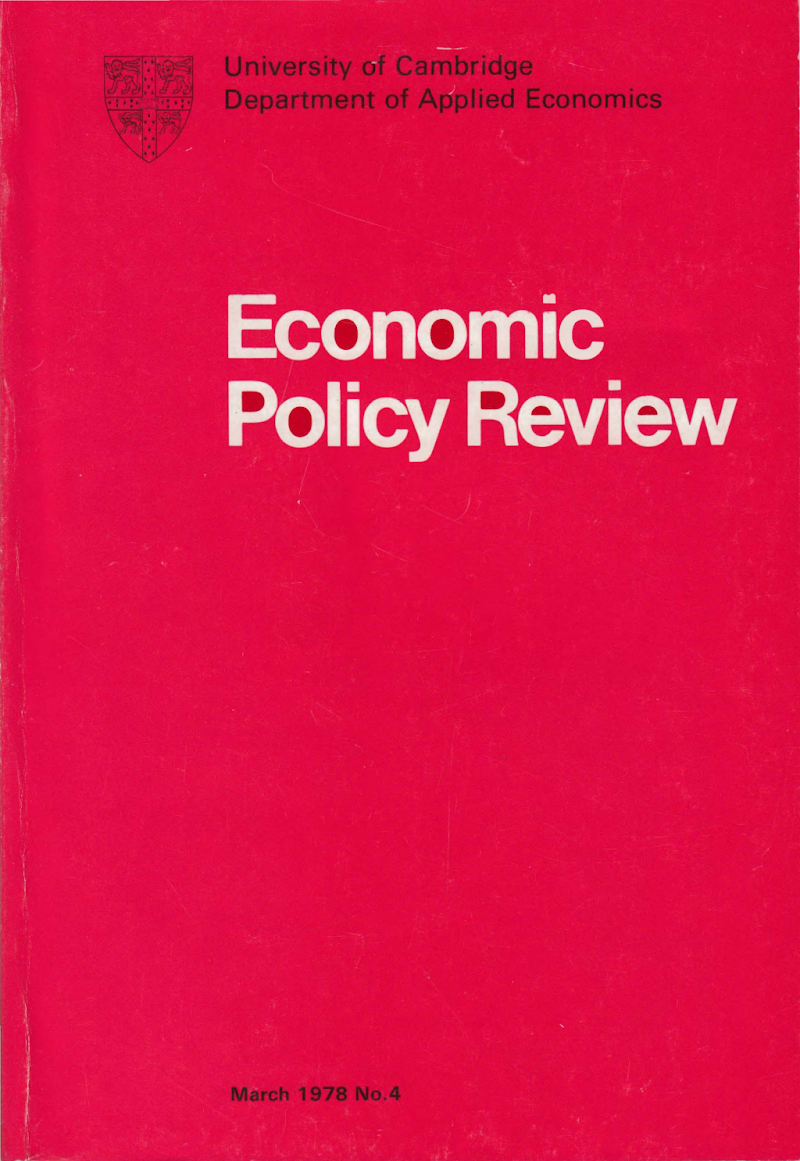I came across the Cambridge Political Economy Society digital archive today. It has scans of papers which aren’t available elsewhere.
There’s an interesting article, Causes Of Growth And Recession In World Trade, there, by Francis Cripps, in which he describes the Cambridge Keynesian idea of achieving balanced trade, because nations face a balance-of-payments constraint:
The main conclusion of the analysis presented below is that demand creation by means of fiscal and monetary action at the national level is very unlikely to be able to procure a recovery from world recession, because it does not offer a solution to the structural problem of imbalances in trade. On the other hand, demand creation at the international level, designed to boost countries’ import capacity in a manner analogous to a national budgetary stimulus of domestic spending, could in principle ensure a steady world reflation. But the political obstacles to an international programme of income creation are immense, partly because this would implicitly or explicitly involve massive transfers of income from surplus countries to deficit countries.
The alternative to a programme of income creation and redistribution would be an effective mechanism for the adjustment of trade shares, making it possible for individual countries to balance their payments at a high level of domestic activity. Exchange rate changes have hitherto been accorded this role, but experience during the past decade of large exchange rate adjustments has shown that they are quite inadequate for this purpose. The exchange rate mechanism therefore needs to be reinforced, or replaced, by some other system of trade discrimination. Import restrictions, already widely used by developing countries to regulate their trade balances, are at present more or less prohibited for Western industrial countries. Many of these could achieve a recovery of their own economies if they were allowed to introduce import controls. But such action on the part of industrialised countries would not help developing countries. Indeed to sustain growth of output and employment in every country, trade controls would have to be operated on a multilateral basis with positive discrimination in favour of the weakest. Given the desperate plight of some very poor countries, the case for positive discrimination in their favour is now becoming urgent.
…
The analysis developed below treats world trade as a demand-determined system in which the level of demand is governed by balance-of-payments constraints facing individual countries and the way these interact. …
